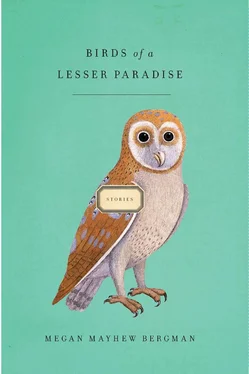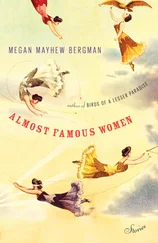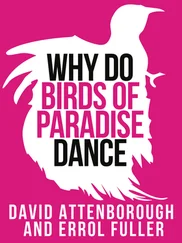There are no more snapper and mutton, I said. Everything is changing—
Why am I angry? Dad asked, a hand over his heart. I feel — You fought with Susan, I said.
Who’s Susan? he said.
I thought for a minute that I might tell him the truth, fight to keep him in the present, refresh his memory. But my feelings for him were beginning to warm and I reached for his hand, the blued knuckles that had, moments ago, held a bottle like a crude mallet.
No one special, I said.
Why am I wet? Dad asked. His shirt hung from his collarbones, clung to his thin skin.
A fish pulled you in, I said. One with a lot of fight.
Cruise ship comes in this afternoon, the officer said. I’m expecting a long night.
I ignored him the way my father had taught me. Only acknowledge authority when it’s earned, he’d said.
Perhaps it was only his body, not his ideas that were outmoded. I was surprised that our small, personal tragedy felt sharper than the broken ocean, that this man’s one overextended life troubled me more, in this moment, than the epic loss of life underwater. I was surprised at the lengths I’d gone to protect his life, enrich it, prolong it. Moments after murdering him in my imagination, I again felt as though I’d do anything for his comfort, his temporary happiness.
Did I get it? Dad whispered. The fish?
I draped the towel over his bony shoulders and pulled the ends together across his chest, where I could feel his artificial heart thumping like a piston, impossible to stop, impossible to break.
Of course you did, I said. But in the end you let it go.
The Two-Thousand-Dollar Sock
Vito was lethargic, curled up in his fleece bed with sad eyes. He wasn’t eating. I touched his distended abdomen and he recoiled as if it was sore.
Six times he’d eaten a sock. Five times it had come out the other side, worse for the wear, composted. But not this time.
It was the sixth sock that did not pass. Not Poppy’s baby sock, or Russ’s wool hiker, but my sock. An old sock. A sock that had been with me longer than my husband. A sock with a cotton ball on the back like a rabbit tail. A cute sock. A sock that blocked my shepherd’s intestines.
Anything, I said to the vet. I’ll do anything .
It was that kind of week. The kind where I put face wash in my hair, ran out of milk, bruised my shin on the bed frame in the night. The kind where my infant daughter discovered she preferred my husband to me, turned to him with the cry of a kitten, cooed at his touch.
It was the kind of week where a black bear discovered my honey stash, rifled through two hives in the backyard. It was a character-building week, a week that thinned my hair, put circles underneath my eyes.
Once bears taste honey, a neighboring keeper told me, they’ll stop at nothing to have it. I’ve seen them take shock after shock from an electric fence just to shove that sweet stuff into their mouths.
They’re gentle, he said, but determined. First they sniff out the honey. Then they go bipedal, ripping the top from your apiary, pushing the hive to the ground.
Put away bird feeders and buy a bear-proof garbage can, we were told.
A fed bear is a dead bear, my neighbor said.
We didn’t listen.
Russ taught Poppy the pilot’s alphabet.
Alpha, Bravo, Charlie, he said. Victor, Whisky, X-ray.
I liked the way the s in whisky rasped through Russ’s missing teeth.
Poppy grinned an empty grin, her teeth only beginning to bud. It was hard to tell if she absorbed his words, or if she just liked the sound and attention.
So P is for Papa and M is for Mike? I said. What gives?
Russ smiled his fighter’s smile. Where’s Poppy’s Bink?
Bink was Poppy’s comfort toy. Bink had the head of a bear and the body of a soft blanket, rimmed in lavender silk. I pulled him from her diaper bag and handed her the toy.
Poppy brought Bink to her mouth and looked up at me with shy eyes. Her eyelashes were long and thick.
You eat that bear! I said, tweaking her nose. Eat him!
Russ was an amateur boxer. A former college wrestler, he scrapped for fun, for money, for pride. He boxed in gyms, back-alley rings, parking lots if the mood was right.
Lower death rate than horse racing, he told me.
We’d met working out at the gym, Russ pummeling the punching bag. Me sparring with my father, who’d learned sword fighting in Thailand. Dad thought I was good enough to get acting work.
Maybe you could be a stunt double, he said. For that Xena chick. A warrior princess.
The problem, Pop, I said, is that I don’t look like a movie star.
Get porcelain veneers, he said, pushing his dentures forward.
I want a family, I said.
Dream bigger, he said.
Dad and I had just moved to Massachusetts from North Carolina. He’d inherited a house from his uncle. It was a free house, but the move disconnected Dad from his past. We kept training and looking for work. The best gig I got was fighting a team of actor ninjas with a trick sword on the stage of a thumping private nightclub in the city where the guests were too coked to notice.
But Russ found the sword skills sexy and let me hang a Taiwanese sword with a beveled edge over the bed, a fencing foil over the couch.
Dragon slayer, he said, kissing my neck.

When he wasn’t fighting, Russ was a pilot for hire. He’d flown F-15Es in the first Gulf War and then got a commercial license, but work was scarce in western Massachusetts. I’d worked as a receptionist at a trucking company until my third trimester. When I quit, we lost our benefits. We rented a house from Russ’s mother, down a dirt road, on the edge of a national forest. There were heirloom currants in the backyard, rusted-out tractors and stone-pile fencing behind the trees. The vinyl siding was dirty from hard winters. A stone fawn curled up between two boxwoods near the front door. All that land, staring us in the face.
The thing about an old house, I’d said, is that you have to pick up where someone else left off.
A transitional period, Russ called it.
I took Vito to the veterinarian’s office while Russ idled a jet at the airport for some CEO.
I’ll keep him here for observation in case he passes the sock. We could do an exploratory, the vet said. See if we can locate the foreign body.
You’ll let me know before you operate? I said.
Of course, the vet said.
I couldn’t look at Vito when it was time to leave.
I said we’d do anything, but I was worried we couldn’t afford to treat him. I knew his eyes would convince me to mortgage the house, become a one-car family, eat ramen noodles five days a week. I heard the cage close.
I could sense Poppy’s hunger as I signed a form at the checkout counter. She began thrusting her head into my chest, rooting for my nipple.
No, honey, I said, readjusting her.
By the time we reached the car she was sobbing, her lips pursed like the beak of a small bird, wanting.
I mixed a scoop of formula and water into a bottle and sank into the sun-warmed passenger seat to feed her. I stroked the short fuzz of new hair on her head.
I looked at Poppy the way I would look at my own heart — with confusion and gratitude. There were days when I burped her too hard, prayed for her to fall asleep. There were nights I couldn’t put her down, her fresh face burrowed into my body, hand around my finger.
Mommy’s here, I said, though I felt like a fraud.
Before Poppy was born, we’d discussed ways to make money.
We could distribute the census, I said.
Become freelance property managers, Russ said.
Читать дальше













